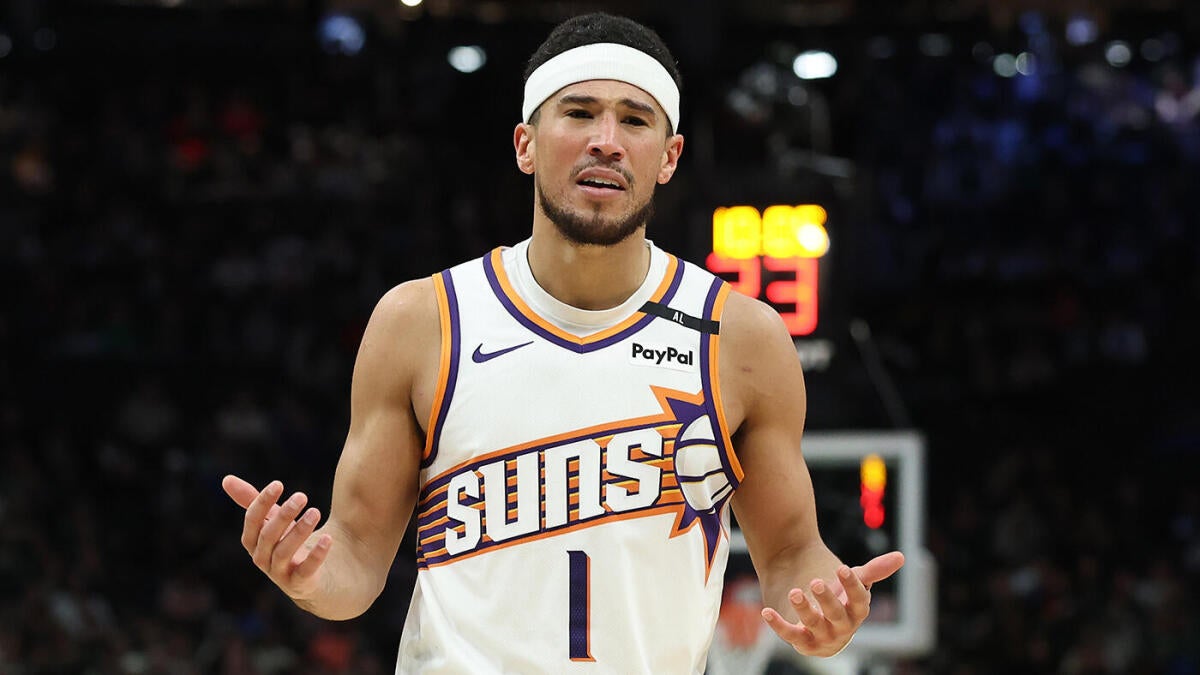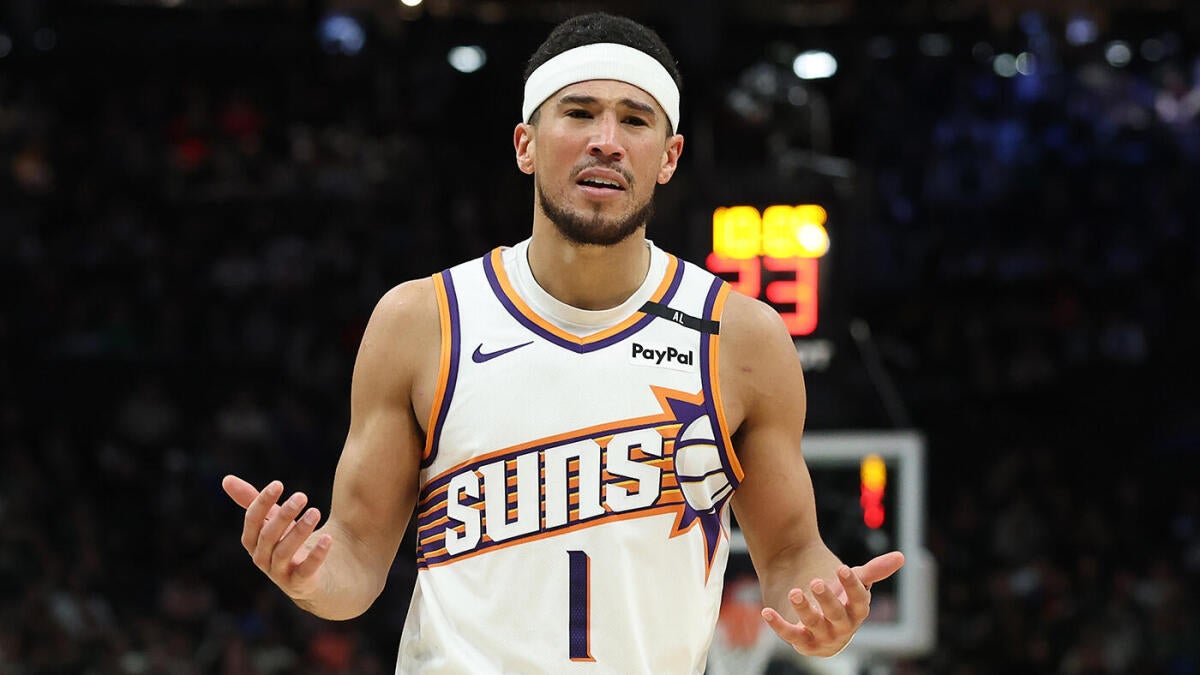The Phoenix Suns’ Gamble: A Deep Dive into Devin Booker’s $145 Million Extension
The NBA landscape is once again abuzz with the news of Devin Booker’s two-year, $145 million contract extension with the Phoenix Suns. This isn’t just another routine player signing; it’s a bold statement that could redefine the future of the franchise. The deal, which includes an average annual salary of $72.5 million, is poised to be the highest annual extension salary in NBA history. But is this a masterstroke or a desperate overpay that could haunt the Suns for years? Let’s dissect this seismic deal.
The Devil is in the Details: Understanding the Contract
Before diving into the implications, it’s crucial to understand the specifics of the contract. Booker was already under a four-year, $222 million supermax deal signed in 2022, with three years remaining. This extension adds two more years, keeping him in Phoenix through the 2029-30 season. The $145 million for these two years translates to an average annual salary of $72.5 million, a figure that could set a new benchmark for player extensions.
This extension isn’t just about rewarding Booker’s talent; it’s about securing the franchise’s future. By locking in Booker long-term, the Suns are signaling their commitment to building a championship-contending team around him. This move also provides a sense of stability in a league where player movement is the norm. Booker’s public and private expressions of loyalty to the Suns further solidify this commitment.
Booker’s Value: More Than Just Points
Devin Booker’s value to the Phoenix Suns extends far beyond his impressive scoring numbers. He’s a three-time All-Star and a scoring machine capable of dropping 50+ points on any given night. His offensive prowess is undeniable, and he’s proven himself to be a legitimate offensive focal point. However, his impact goes beyond statistics.
Booker is the embodiment of the Suns’ identity, a homegrown talent who has weathered the storms of mediocrity and emerged as a leader. His loyalty to the franchise resonates with fans and provides a sense of stability in a league often defined by player movement. This loyalty is a rare commodity in today’s NBA, where players frequently change teams in pursuit of championships or better opportunities.
Furthermore, Booker has shown a willingness to adapt his game to fit alongside other stars. The arrival of Kevin Durant and Bradley Beal necessitated adjustments, and Booker demonstrated the ability to thrive in a slightly different role. This adaptability is crucial for sustained success in the modern NBA, where teams must constantly evolve to remain competitive.
The Suns’ Predicament: A History of Missed Opportunities
The backdrop to this extension is crucial. The Phoenix Suns have a history of being perpetually on the cusp of championship contention but ultimately falling short. The “Big Three” era, featuring Durant, Beal, and Booker, was supposed to be the answer, but early returns have been underwhelming. The team’s history is riddled with questionable decisions and missed opportunities, from draft-day blunders to ill-fated trades.
This history of near-misses has created a sense of urgency within the organization. New ownership, led by Mat Ishbia, is clearly determined to shake things up and deliver a championship to Phoenix. Ishbia’s involvement in the coaching search, including discussions with Booker, underscores this commitment. The decision to extend Booker’s contract can be seen as a direct response to this pressure. It’s a move designed to appease fans, reassure sponsors, and project an image of stability amidst the uncertainty.
Is It an Overpay? The Counterarguments
Despite Booker’s undeniable talent and importance to the Suns, the question of whether this extension constitutes an overpay remains a valid one. $72.5 million per year is a staggering figure, even in the inflated economy of the NBA. Critics will point to Booker’s lack of playoff success as a reason for caution. While he has shown flashes of brilliance in the postseason, he has yet to lead the Suns to a championship. Some argue that he is not a true “number one” option, someone who can consistently elevate his team in the biggest moments.
Furthermore, the presence of Durant and Beal raises questions about resource allocation. The Suns are already heavily invested in their star trio, and this extension further limits their financial flexibility. The team’s depth has suffered as a result, and the ability to add complementary pieces around the stars will be severely restricted. Can a team with such a top-heavy payroll realistically compete for a title?
Another factor to consider is Booker’s injury history. While he is generally durable, he has had his share of nagging injuries that have sidelined him at crucial times. Investing such a significant amount of money in a player with any level of injury concern is inherently risky. Some analysts believe that the Suns haven’t learned their lesson from their failed “Big Three” era, and that this extension is a symbolic move rather than a strategic one. They argue that locking in Booker doesn’t guarantee success and that the Suns need to address their deeper roster issues to truly contend.
The Ishbia Factor: A New Era of Spending
Ultimately, the decision to extend Booker’s contract reflects the new reality of the NBA, where owners are increasingly willing to spend exorbitant sums to secure star talent. Mat Ishbia’s arrival has ushered in a new era of spending in Phoenix, and this extension is a prime example of that. Ishbia’s willingness to open the checkbook is a double-edged sword. On one hand, it demonstrates a commitment to winning and a willingness to invest in the team’s future. On the other hand, it creates immense pressure to deliver results. If the Suns fail to contend for a championship in the coming years, the Booker extension will be viewed as a costly mistake.
Conclusion: A High-Stakes Gamble
Devin Booker’s $145 million extension is more than just a contract; it’s a referendum on the direction of the Phoenix Suns. It’s a high-stakes gamble that could either propel the franchise to unprecedented heights or condemn it to years of mediocrity. The success of this deal hinges on several factors: Booker’s continued development, the health and cohesion of the star trio, and the ability of the Suns to find creative ways to build a competitive roster around their core.
If all these pieces fall into place, the Suns could emerge as a legitimate championship contender. However, if the team continues to struggle, if injuries derail their progress, or if the chemistry among the stars falters, the Booker extension will be viewed as a symbol of the Suns’ flawed approach. Only time will tell whether this decision proves to be a stroke of genius or a crippling mistake. One thing is certain: the Phoenix Suns have placed their bet, and the future of the franchise rests squarely on the shoulders of Devin Booker. The Valley will be watching, hoping that their star can lead them to the promised land. The pressure is on, the stakes are high, and the clock is ticking. The Suns have made their choice; now, they must make it work.












